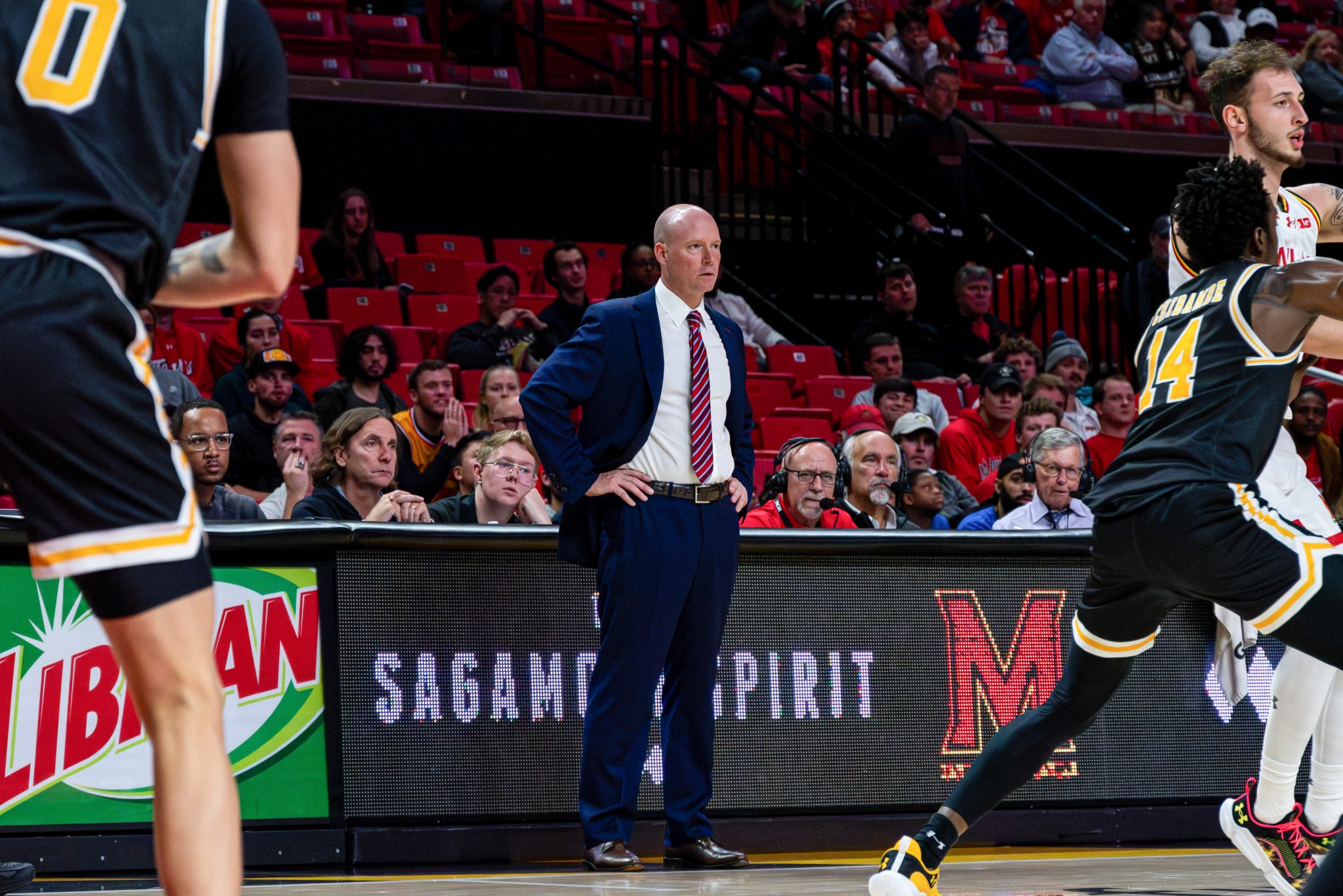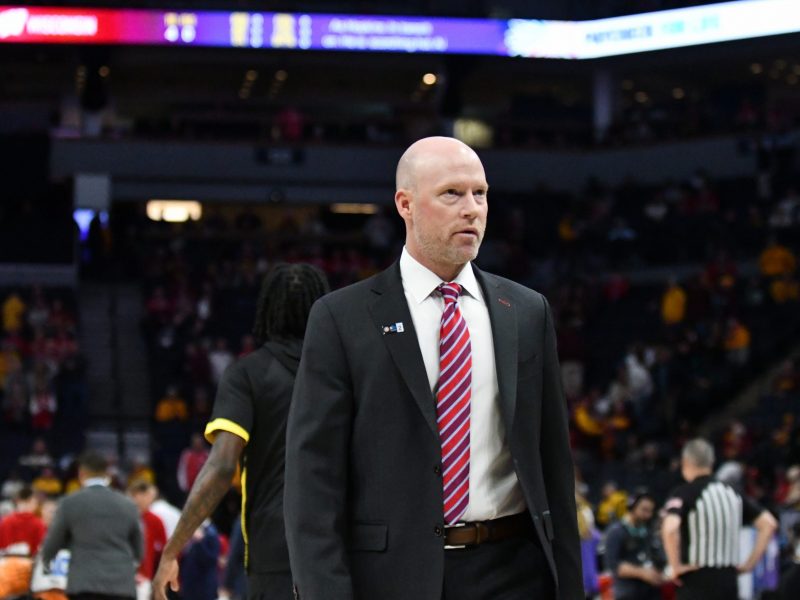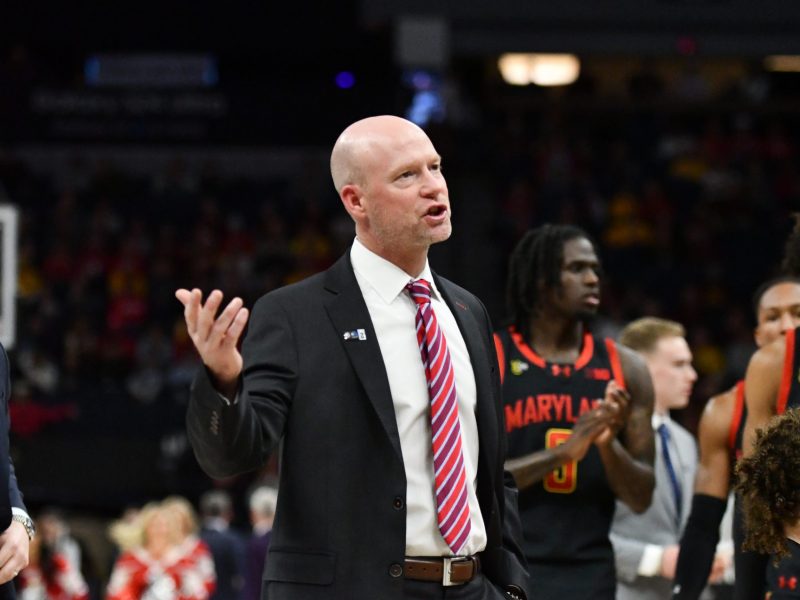After Maryland dropped its third consecutive game away from Xfinity Center in a loss at Villanova on Nov. 17, coach Kevin Willard said there was one thing he wanted — ten days at home.
He blamed himself for creating a schedule he said wasn’t conducive to his team’s growth. The Terps played just one home game in the first two weeks of the season and entered the year with several players just returning from preseason injuries, leading to fluctuating rotation and roles.
It led to a 1-3 start. Maryland’s offense averaged just 54.7 points per game, shooting 36.4 percent from the field and 22.9 percent from beyond the arc in its three game losing streak.
The Terps followed up those losses with three consecutive wins with an average margin of victory of more than 20 points. They came against opponents that aren’t at the caliber of those that will ultimately decide Maryland’s fate in conference play — or should the Terps make it, the postseason.
“I kind of knew this is how the season was gonna go, to be honest with you,” Willard said after Maryland’s 103-76 win over Rider on Tuesday. “I knew we were going to struggle early … I feel good. I don’t think we’re there yet, I think we still have a lot of work to do, but they’re trending in the right direction.”
[Maryland men’s basketball blows out Rider, 103-76, for third consecutive win]
Maryland returns to the road and will face an imposing opponent Friday against 5-1 Indiana.
“I think we’ve gotten much more calm and comfortable on the offensive end … we are in a little bit better rhythm,” Willard said. “I think the ten days have given these guys a chance to really just practice and be at home and really focus on basketball and school. Sometimes that’s really important.”
Willard thinks his team has grown more comfortable with how to play with one another, and that his players have developed a better understanding of their roles.
Entering Tuesday’s game, Maryland still struggled to shoot from deep and take care of the ball. Maryland shot a combined 11-for-52 from three in wins over UMBC and South Alabama and hadn’t played a game with more assists than turnovers.
The Terps improved in those regards against Rider, shooting 40 percent from beyond the arc and recording a season-high 17 assists with a season-low six turnovers.
Some of that improvement can also be attributed to Maryland solidifying its starting five.
Jahmir Young, DeShawn Harris-Smith, Donta Scott and Julian Reese have started every game. The fifth starter changed to begin the year in a process that Willard said he was “failing miserably” in after the Villanova game.
[Jordan Geronimo has grown more comfortable and produced for Maryland men’s basketball]
He seems to have found his answer in Jordan Geronimo, who has moved between the starting lineup and the bench. With Geronimo at power forward, Donta Scott moves to small forward in a lineup Willard called one of the most productive in the country.
“[Scott] just seems so much more relaxed [playing the wing],” Willard said after Maryland’s win over South Alabama on Nov. 25. “He understands what he’s doing offensively [compared] to when the first three games, he had no idea what he was doing … I’ve just stuck with it and I’m sticking with it for the rest of the year.”
Geronimo was averaging three points per game through Maryland’s first four games while shooting 30.8 percent from the field. Since then, he’s averaged 12.7 points while his field goal percentage over the span had more than doubled to 76.5 percent.
Scott averaged 8.3 points per game on 39.3 percent shooting in his first four games but has since averaged 13 points and made half of his attempts from the floor.
The Terps have made changes that stabilized their season. Now they must prove they can lead to wins over bigger programs and away from College Park.
CORRECTION: A previous version of this story misstated that Kevin Willard called Jordan Geronimo one of the most productive power forwards in the country. Willard was referring to Maryland’s lineups with Geronimo at power forward and Donta Scott at small forward. This story has been updated.



